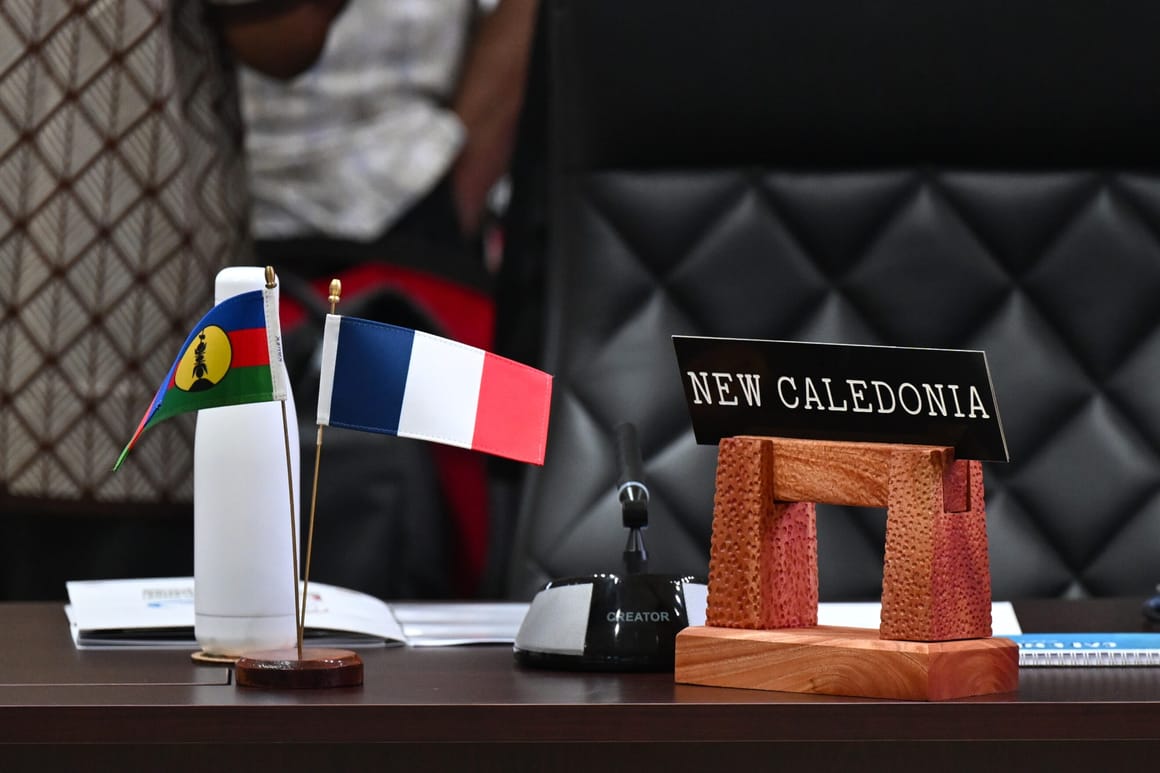Politics
New Caledonia’s Independence Hopes Diminish as Key Agreement Fails

The main pro-independence alliance in New Caledonia has officially rejected a proposal from Paris aimed at establishing a new political status for the territory. This decision, made late on Tuesday, effectively derails an agreement that had the potential to reshape the relationship between New Caledonia and France.
The deal, signed in February 2024 in a suburb of Paris, envisioned New Caledonia transitioning to a quasi-independent state. Under this plan, the territory would remain under the French Constitution but would gain significant self-governing powers. These included the ability to manage its own foreign affairs and the provision for its residents to hold both French and Caledonian citizenship, diverging from the current arrangement that recognizes only French citizenship.
While the agreement initially garnered support from various political factions, including a representative from the Kanak and Socialist National Liberation Front (FLNKS), it ultimately fell short of including a new referendum on independence. This lack of a referendum emerged as a critical sticking point for the FLNKS political bureau, despite their negotiator’s earlier endorsement of the proposal.
Dominique Fochi, a member of the FLNKS political bureau, expressed strong discontent during a press conference, stating that the agreement was “incompatible with the fundamentals and achievements of [the FLNKS’] struggle.” New Caledonia has faced significant challenges, including an economic crisis, community tensions, and political violence. The territory’s strategic importance for France, due to its rich natural resources such as nickel, has heightened these issues.
Tensions in New Caledonia escalated dramatically last spring. Riots erupted in response to a proposed electoral reform that would have reduced the political influence of the native Kanak population. This unrest resulted in the deaths of fourteen individuals and caused property damage exceeding €2 billion.
In light of the FLNKS’s rejection, Manuel Valls, France’s Minister for Overseas Territories, indicated he had anticipated this outcome. In a post on social media, he expressed regret that the FLNKS had turned away from what he called a “historic compromise.” Valls also announced plans to visit New Caledonia next week in an effort to salvage the agreement, emphasizing that the state must continue to serve as “a guarantor of justice for all and of the exercise of democracy, which cannot survive under the threat of violence.”
As the situation unfolds, the implications for New Caledonia’s future remain uncertain. The FLNKS has vowed to organize a peaceful opposition against any attempts to enforce the rejected agreement, highlighting the continuing complexities surrounding the territory’s quest for autonomy and stability.
-

 Top Stories3 months ago
Top Stories3 months agoTributes Surge for 9-Year-Old Leon Briody After Cancer Battle
-

 Entertainment4 months ago
Entertainment4 months agoAimee Osbourne Joins Family for Emotional Tribute to Ozzy
-

 Politics4 months ago
Politics4 months agoDanny Healy-Rae Considers Complaint After Altercation with Garda
-

 Top Stories4 months ago
Top Stories4 months agoIreland Enjoys Summer Heat as Hurricane Erin Approaches Atlantic
-

 World5 months ago
World5 months agoHawaii Commemorates 80 Years Since Hiroshima Bombing with Ceremony
-

 Top Stories3 months ago
Top Stories3 months agoNewcastle West Woman Patricia Foley Found Safe After Urgent Search
-

 Top Stories5 months ago
Top Stories5 months agoFianna Fáil TDs Urgently Consider Maire Geoghegan-Quinn for Presidency
-

 World5 months ago
World5 months agoCouple Convicted of Murdering Two-Year-Old Grandson in Wales
-

 World5 months ago
World5 months agoGaza Aid Distribution Tragedy: 20 Killed Amid Ongoing Violence
-

 World5 months ago
World5 months agoAristocrat Constance Marten and Partner Convicted of Infant Murder
-

 Top Stories4 months ago
Top Stories4 months agoClimbing Errigal: A Must-Do Summer Adventure in Donegal
-

 Top Stories4 months ago
Top Stories4 months agoHike Donegal’s Errigal Mountain NOW for Unforgettable Summer Views









